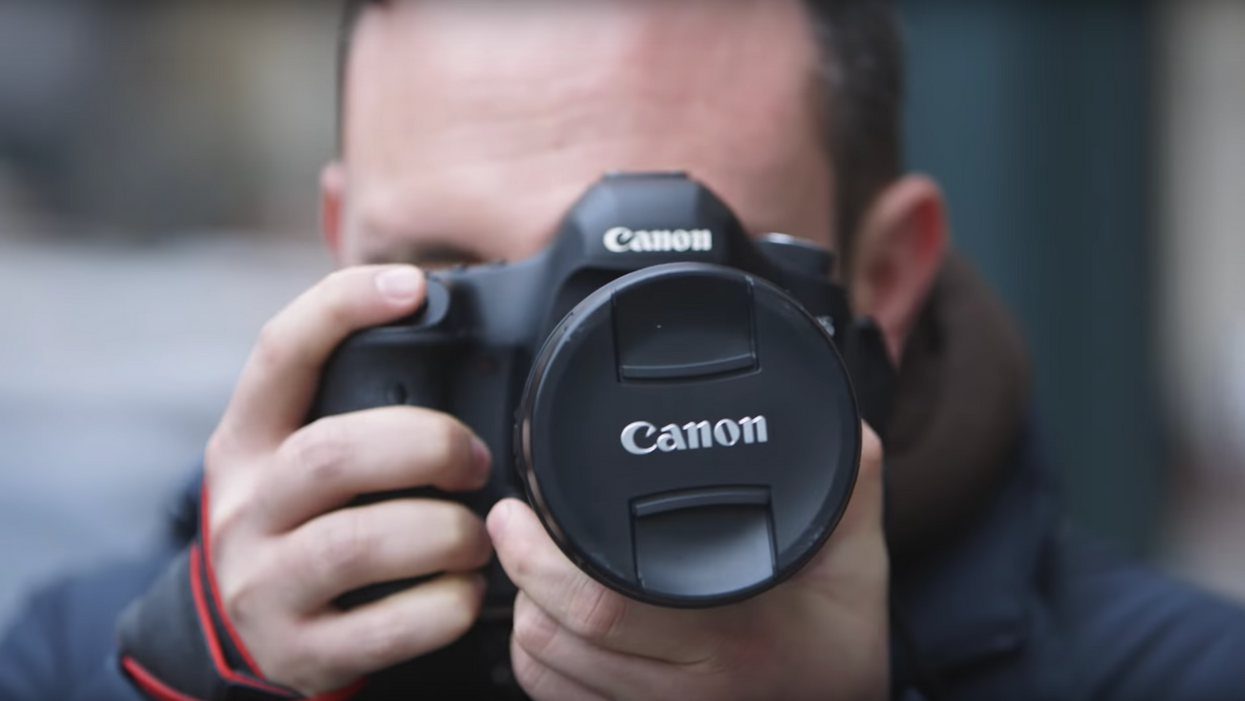Watch: 7 Ways You Might Be Using Your Camera Wrong
These common mistakes are super frustrating but they're also 100% avoidable.

We've all made some pretty amateur mistakes at the beginning of our filmmaking careers, from not charging your camera before a shoot to not pressing record before "recording". (I was guilty of that for a weirdly extensive amount of time.) However, there are many other ways that a filmmaker can use their cameras incorrectly, some of which may not be as obvious as leaving your damn lens cap on. David Flores of B&H goes over seven ways you could potentially be misusing your camera in the video below.
Even though Flores' tips focus more on how to use a camera correctly for photography, they still apply to filmmaking and cinematography.
- Not holding your camera correctly: Granted, the filmmakers using stabilizers, monitors, or big cinema camera rigs aren't going to be holding their cameras the "proper way," but the basic idea of the lesson is still relevant: make sure you're balancing your camera properly and providing enough stability to get the shots you want.
- Not cleaning your lens: In the fog of filmmaking, it's easy for the "little things" to be overlooked, but cleaning your lens shouldn't be a little thing. Making clearing your glass of dust, dirt, and grease a part of your routine so you don't have to worry about smudges ruining your shots.
- Not having spare batteries or memory cards: Not having enough power or memory to continue a shoot is the absolute fucking worst. Not keeping plenty of charged batteries and empty memory cards on hand will not only stop production in its tracks but it will also make everybody on set made at you for wasting their time.
- Not adjusting your focus point: Auto-focus can be helpful for getting sharp focus, but make sure that your focus points are where they need to be...over your subject.
- Shooting in the wrong mode: When you're first starting out, it's natural to want to avoid manual mode at all costs. But before you set your camera to an auto setting, make sure you know exactly what that setting does and how it works. How will it affect your aperture, shutter speed, frame rate, and ISO?
- Using auto-white balance: Auto-white balance can be a powerful tool in some settings, but doing it yourself (as long as you know how) can help ensure that your colors are being rendered correctly.
- Not exposing properly: Exposing an image can be difficult even when you know what you're doing. (Believe me, pros still unintentionally under and overexpose images all the time.) One of the best ways to ensure proper exposure is by using a light meter, which you can learn how to do here and here, but if you don't have one, you can always manually adjust your aperture, shutter speed, and ISO until you're happy with your image. Understand, though, that changing shutter speed affects motion blur and cranking up your ISO can lead to grainy images.
What are some other common camera mistakes? How do you avoid them? Let us know down in the comments.
Source: B&H











